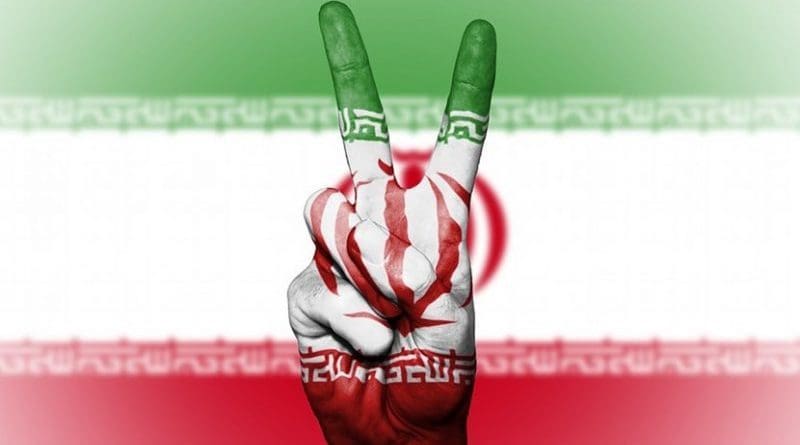Prisoners’ Uprisings Spotlight Iranian Regime’s Desperate Need For Sanctions Relief – OpEd
Tehran is in a very difficult impasse, with a barrel of oil at $13, crushing sanctions and widespread Coronavirus outbreaks. While, on the one hand, refusing to negotiate with the US about medical and humanitarian supplies and expelling doctors without borders, on the other, the Iranian regime is boosting its unprecedented activities to try to get relief from the US sanctions ‘to help combat the virus’.
Rouhani is trying to use the Coronavirus crises as an ‘opportunity’ to break the sanctions; he has started a campaign in this regard, and appeaser circles in the United States have started to oppose the White House in an orchestrated effort to come to Tehran’s aid. In the media under the pretext of “defending human rights” and “compassion for Iranian people” they portray “Continued sanctions hurt the Iranian people”.
Even the Washington Post in its editorial wrote: “US sanctions prevent imports of medicine and medical supplies to Iran.”
But the US government’s response to this propaganda, and rightly so, was the announcement of new sanctions, while the Secretary of State and a spokesman for the US State Department explained firstly that the imposed sanctions do not include medicines and medical supplies and secondly, that, whatever money the regime receives, it will not spend on medicines and medical treatment for the people, but on terrorism and warmongering and the suppression of its citizens.
Meanwhile, Abbas Abdi from Rouhani’s faction has made a shocking point.
In a statement posted on the regime’s “Khabar Foree” (Breaking news) website, he writes: “Rouhani thinks that now is the best opportunity to resolve the issue of sanctions and start the talks.” The continued insistence on lifting sanctions and stirring international sentiment in this regard is the evidence of this claim. “This seems to be a priority for the head of government.”
This means, Rouhani deliberately wants to increase the number of Coronavirus victims and to use it to “stir up international sentiment” and pressure the US to ease the sanctions. This means that the regime and Rouhani, with precisely the same methodology with which they took Americans hostage, have taken the Iranian people hostage and massacre them, not one by one and not in tens but thousands, by hundreds of thousands if need be, to force the other party to give concessions.
In this way, both ruling factions, with their own logic and reasons, have sacrificed the Iranian people for their own interests. Camp Khamenei hides the extent of the Coronavirus epidemic so that its electoral and planned engineering election to get rid of Rouhani will not be interrupted. The Rouhani camp, by deliberately spreading Coronavirus and continuing to neglect Coronavirus outbreaks and people being massacred wants to put pressure on the United States.
In the meantime, riots and escapes over the course of a week from the country’s prisons have rattled the regime apparatus.
Over the past 41 years, Tehran has used much of its forces and facilities to expand and control prisons. Prisons, a symbol of the power and stability of the ruling organization, have made the oligarchic apparatus of the Supreme Leader able to create terror and horror in the mind of the public, but now they have become a focal point of rebellion against the regime.
Imprisonment was one of the most important leverages in the hands of the Iranian regime to eliminate its dissidents over the past 41 years, along with mental and physical torture to draw forced confessions about uncommitted acts.
After the Coronavirus outbreak, the prisoners were the most vulnerable and least protected group of people.
At the same time, however, many of the regime’s military and political organs have been weakened by the Coronavirus outbreak. This is how, on 20 March, prisoners held at Khorramabad’s Parsilon Prison could riot and some were able to escape. One day later, on the evening of 21 March, prisoners at Aligoodarz Prison rioted, clashed with the guards and escaped from prison.
On 26 March, prisoners in Tabriz prison rioted, clashed with prison guards, IRGC and other repressive forces. Some escaped and some were injured by direct fire from the repressive forces.
On Friday, 27 March, another riot broke out at Saqhez Prison in Kurdistan province, in which more than 70 prisoners escaped. One resident said some of the inmates fled the scene assisted by passing cars.
On Sunday, 29 March, prisoners in the Adel-Abad prison in Shiraz rioted. Many inmates in this prison have been infected with the Coronavirus and have received no medical treatment.
“Right now, the father of a friend of mine who is a police station #31 said 200 people had escaped and 70 of them have been recaptured.” said one Shirazi citizen.
And on 30 March, prisoners in Sepidar prison in Ahwaz rioted.
Another day, another prison as the inmates take advantage of the reduced number of guards to make their feelings clear. The world must act to stop this evil regime getting a cent, or a penny more, which will only be used on regaining repressive control in Iran’s prisons, Iran itself and across the region.

